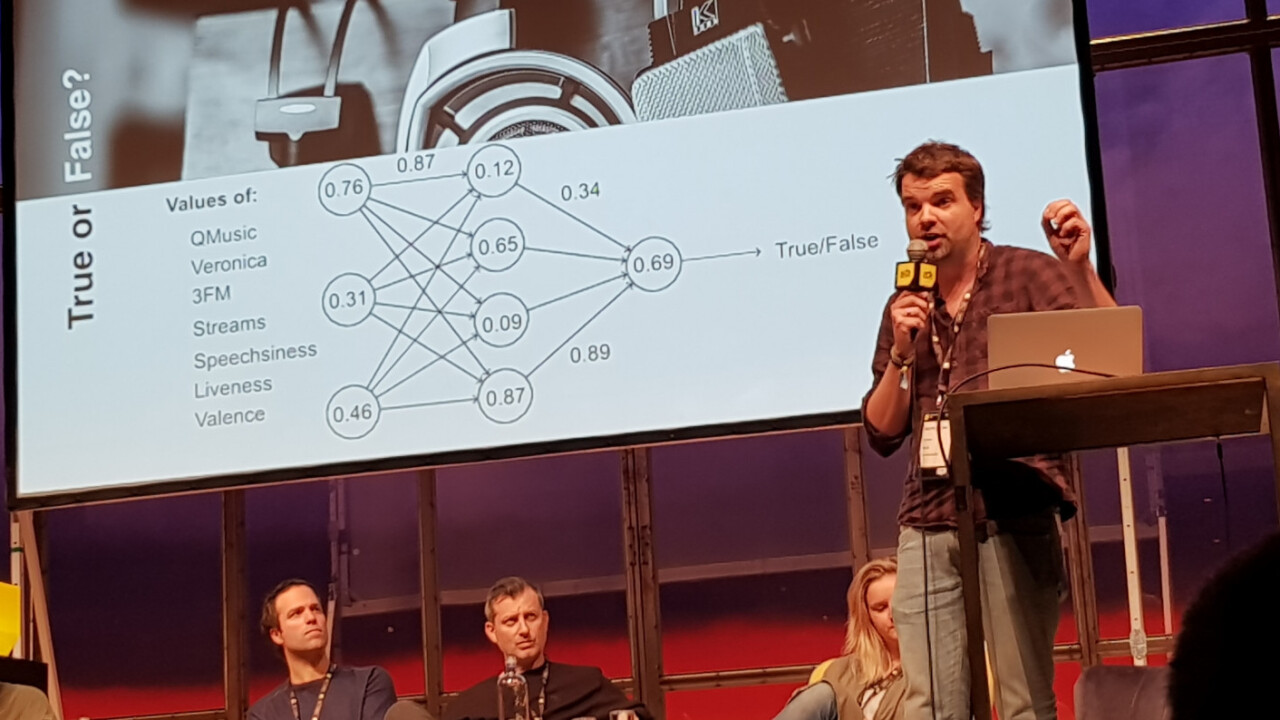
Being on the lookout for the next big hit is what keeps music publishers and producers awake at night – but thanks to artificial intelligence and neural networks, they might finally get a good night’s sleep.
Speaking the Amsterdam Dance Event Tech conference today, Ard Boer from Goldmund Wyldebeast & Wunderliebe took the stage to present the project he and his team have been working on for the past year: Hitwizard, an AI specifically trained to predict the next big hit to take the music industry by storm.

To come up with such predictions, Hitwizard takes into account the various sound parameters of a song (like BPM, valence, tempo) and compares them against airplay data sourced from Dutch radio stations and the local Spotify charts.
This allows the AI to predict what chances a song has of becoming a hit with an accuracy ratio of approximately 66 percent. Curiously, Boer notes that Hitwizard is much better at predicting which songs are unlikely to please the crowds – the AI can guesstimate if your song will flop with an accuracy of 93 percent.

The good thing, as Boer is swift to point out, is that the more data the AI has been fed, the better it gets at making predictions. Boer says that, while Hitwizard can currently predict whether a song will be a hit next week, it could soon be able to predict the success of a song further ahead in time – that is, if the AI manages to collect enough data.
To help the model get closer to this goal, Boer says the company is entertaining the idea of introducing new parameters to the algorithm. One thing he was particularly excited about were social media stats – or how people are responding to a certain track online. Unfortunately, this is harder said than done because a partners that can interpret all this data in a meaningful way are hard to come by.
Still, publishers seem to be optimistic about the prospect of incorporating AI into their workflow. Kobalt Music creator director Dominique Keegan, who was also on the stage, remarked that using such data is crucial to identifying hit songs before they’ve began climbing the charts.
But data on its own, Keegan thinks, might not be enough to get you ahead of the game. “It’s important how consumers interact with the artists, how they engage with their music,” he added. “The success of a song is always contingent on the human aspect.”
Get the TNW newsletter
Get the most important tech news in your inbox each week.




